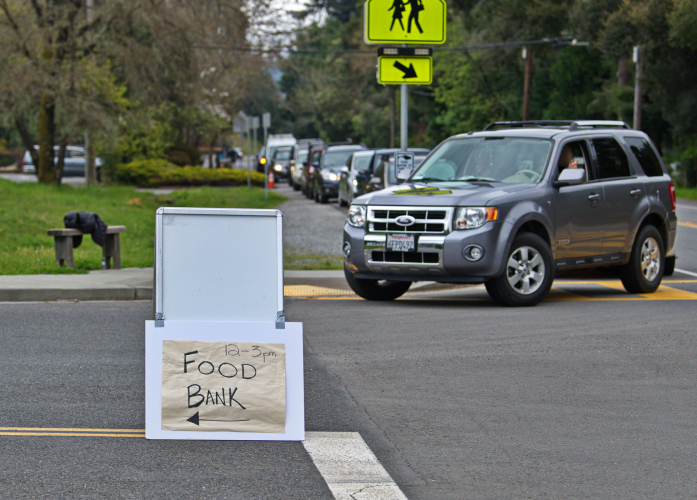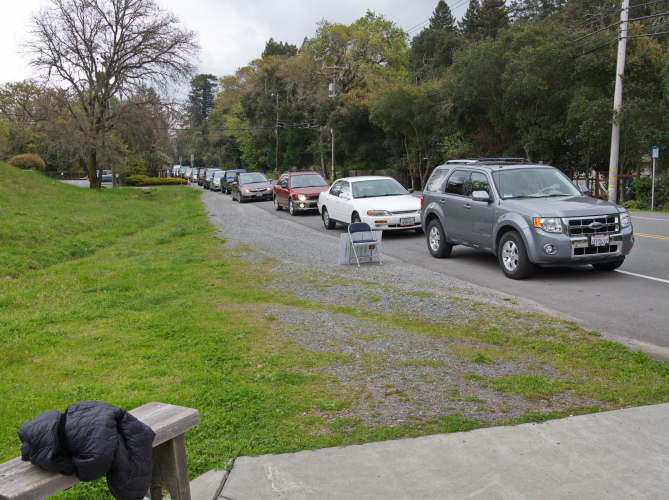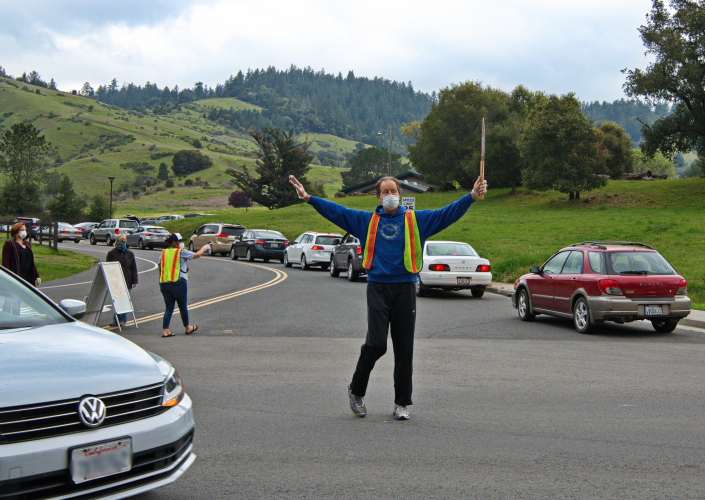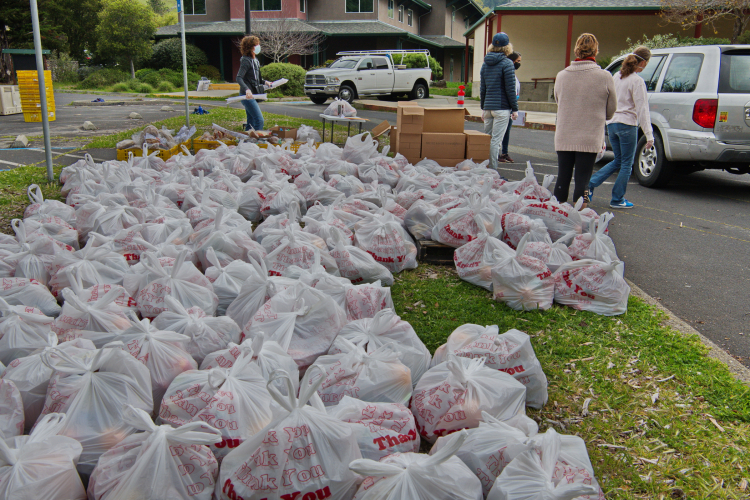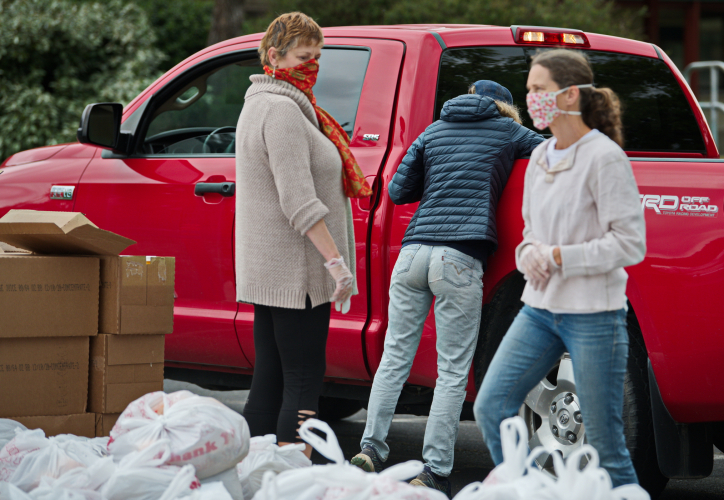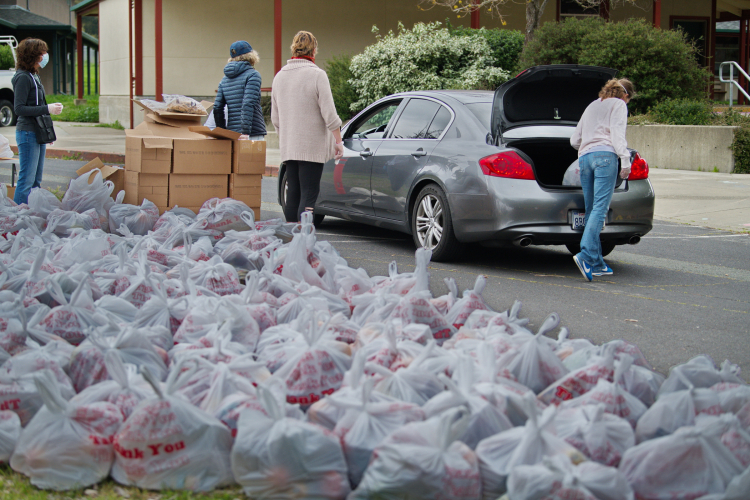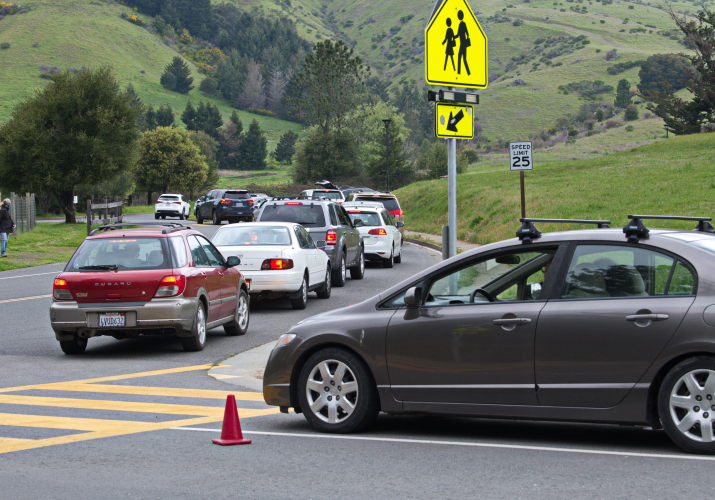From the Open-Publishing Calendar
From the Open-Publishing Newswire
Indybay Feature
San Francisco Marin Food Bank Holds Weekly Drive-Through Distribution in West Marin
Low paid workers face hunger
Photos: Leon Kunstenaar
As the virus pandemic lays bare the deep class division in the US, millions of newly unemployed low wage workers, devoid of adequate unemployment benefits and health insurance, confront hunger and flock to food banks.The US government defines poverty as income not sufficient to live with proper housing, clean water, healthy food, and medical attention. In 2020 that level is set, for a household of four, at $26,200 per year. In the US, twenty percent, or one in five households, make less than $25,000 a year.
In New York City, 14,000 children receive the school lunches many depended on as their main meal for the day.
In the US 40 million people, including 20 million children, rely on SNAP (Supplemental Nutrition Assistance Program) benefits. Earlier this year, the Trump Administration modified this food stamp program and pushed 700,000 people off the rolls.
The "shadow" economy, mostly low wage service people including many immigrants working "off the books," create a GDP estimated at over $2.25 trillion per year. This amounts to over 10 million workers (excluding their children and other dependents). These workers, being "unofficial," have zero recourse to unemployment pay and other government assistance.
Even before the pandemic, exorbitant housing costs in Marin stressed many families whose income was significantly above poverty level.
While trillions of dollars are allocated as economic assistance to blunt the ravages from the coronavirus, none will go to the "shadow" workers, who in fact, risk deportation should they even attempt to access government assistance. According to the SF Marin Food Bank:
10.5 million meals are “missing” in Marin County. In Marin, 19% of the population is at risk of food insecurity. That’s 47,700 people living below 200% of the Federal Poverty Level.
Collectively, they need 52 million meals throughout the year — 3 meals a day, for 365 days. Some of those meals they buy themselves, and others are provided by non-profit organizations and government assistance programs.
BUT EVEN WITH THIS HELP, 1 out of 5 MEALS IS STILL UNACCOUNTED FOR
For more information:
https://kunstena.smugmug.com/PUBLIC/US/202...
Add Your Comments
We are 100% volunteer and depend on your participation to sustain our efforts!
Get Involved
If you'd like to help with maintaining or developing the website, contact us.
Publish
Publish your stories and upcoming events on Indybay.
Topics
More
Search Indybay's Archives
Advanced Search
►
▼
IMC Network


